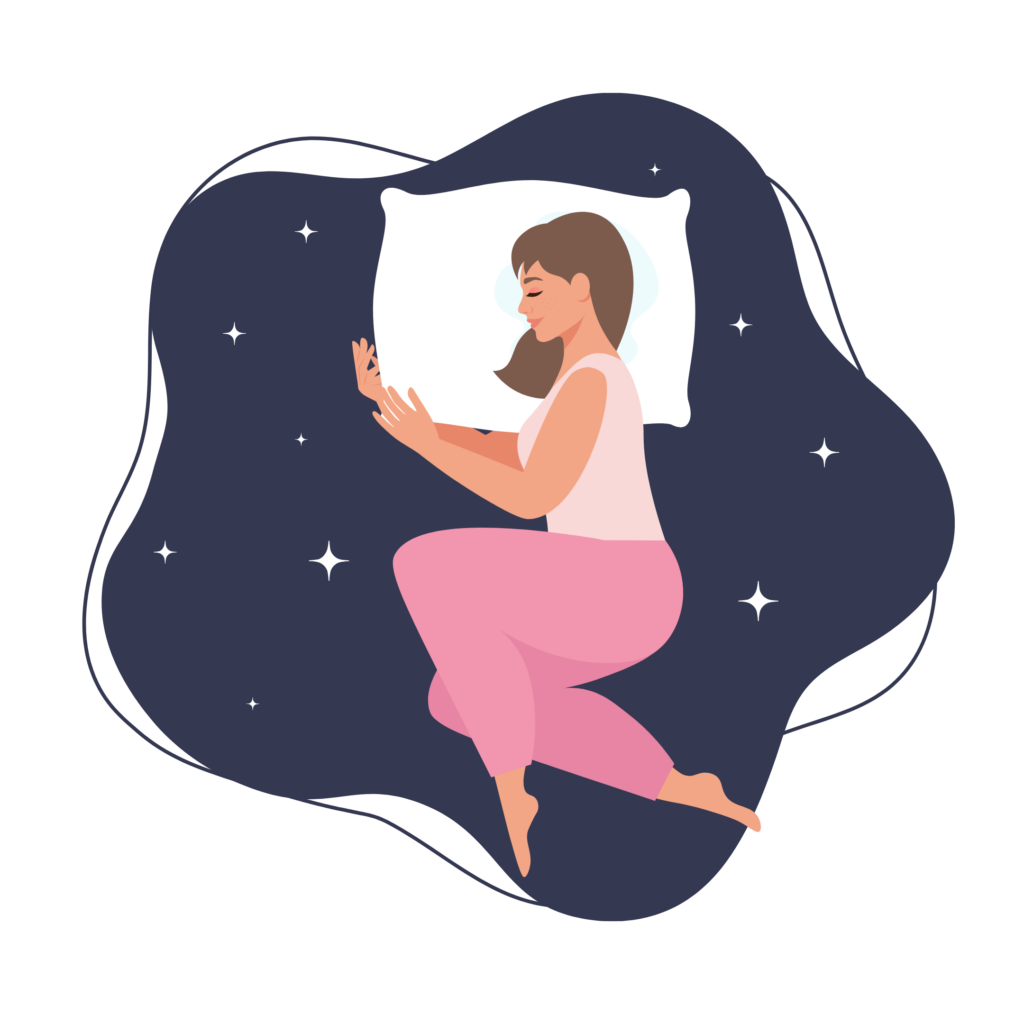In today’s fast-paced world, getting a good night’s sleep is becoming increasingly difficult. From juggling work and family commitments to endless distractions from technology, sleep often takes a backseat. However, good sleep is essential to our overall health and well-being. This is where sleep hygiene comes in—a set of practices and habits that can improve your sleep quality. In this blog post, we’ll dive into what sleep hygiene is, why it’s important, and share practical tips for better sleep.
What is Sleep Hygiene?
Sleep hygiene refers to the habits, behaviours, and environmental factors that help you sleep well at night. It involves creating routines and an atmosphere that promote consistent, uninterrupted, and restful sleep. Good sleep hygiene is crucial for maintaining physical health, cognitive function, and emotional well-being.
Why is Sleep Hygiene Important?
When you consistently practice good sleep hygiene, your body becomes accustomed to falling asleep and waking up at the same time each day. This regularity helps regulate your circadian rhythm (your body’s natural sleep-wake cycle), making it easier to fall asleep and wake up refreshed.
Poor sleep hygiene can lead to:
- Insomnia or trouble falling asleep
- Difficulty staying asleep throughout the night
- Increased stress and anxiety
- Poor cognitive performance
- Lower immune function
- Long-term health issues like heart disease, diabetes, and obesity
By establishing healthy sleep habits, you can drastically improve the quality of your sleep and overall health.

10 Practical Tips for Better Sleep
Here are some actionable tips to help you enhance your sleep hygiene and get the restful sleep you deserve.
1. Stick to a Consistent Sleep Schedule
One of the most important aspects of sleep hygiene is maintaining a consistent sleep routine. Go to bed and wake up at the same time every day—even on weekends. This consistency helps regulate your internal clock and makes it easier for your body to fall asleep at the right time each night. Avoid the temptation to “catch up” on sleep during the weekends, as this can disrupt your schedule.
Tip: If you’re having trouble falling asleep or waking up at a consistent time, start by adjusting your bedtime by 15-30 minutes until you reach your goal.
2. Create a Relaxing Bedtime Routine
Establishing a calming pre-sleep routine signals to your brain that it’s time to wind down. Whether it’s reading a book, practicing meditation, or taking a warm bath, make sure your routine is relaxing and free from stressful activities. Avoid using electronic devices, as the blue light emitted can interfere with your body’s production of melatonin, the sleep hormone.
Tip: Try incorporating calming activities such as deep breathing exercises, listening to soothing music, or light stretching before bed.
3. Optimize Your Sleep Environment
Your bedroom should be a sleep-friendly environment that encourages rest. Make sure your room is cool, dark, and quiet. Use blackout curtains to block out light, and consider using earplugs or a white noise machine to drown out disruptive noises. Investing in a comfortable mattress and pillows is also key to a restful night’s sleep.
Tip: Keep your bedroom temperature between 60-67°F (15-19°C), as this is the optimal range for most people to sleep comfortably.
4. Limit Exposure to Screens Before Bed
Exposure to the blue light emitted by phones, tablets, and computers can suppress melatonin production and delay sleep. Aim to power down all electronics at least an hour before bed. If you must use your devices, consider enabling “night mode” or using blue light filters to reduce the impact on your sleep.
Tip: Try reading a physical book or journaling in the evening to help transition your mind away from the screen.
5. Watch What You Eat and Drink
Your diet can have a significant impact on the quality of your sleep. Avoid large, heavy meals within a few hours of bedtime, as indigestion can make it difficult to fall asleep. Additionally, limit your intake of caffeine and alcohol, particularly in the late afternoon and evening. While alcohol may initially make you feel drowsy, it can disrupt your sleep cycle later in the night.
Tip: If you’re hungry before bed, opt for a light snack that includes sleep-promoting nutrients like tryptophan, such as a banana, a small serving of nuts, or a glass of warm milk.
6. Get Regular Exercise
Engaging in regular physical activity can improve sleep quality by reducing stress, increasing energy levels during the day, and helping you fall asleep more easily at night. Aim for at least 30 minutes of moderate exercise most days of the week. However, avoid exercising too close to bedtime, as it may have the opposite effect and keep you awake.
Tip: Activities like walking, cycling, or yoga are great options that can promote better sleep without overstimulating your body.
7. Avoid Napping Late in the Day
While naps can be a great way to recharge, napping too late in the day can interfere with your ability to fall asleep at night. If you need to nap, try to limit it to 20-30 minutes, and schedule it earlier in the afternoon.
Tip: If you find yourself feeling drowsy in the late afternoon, get some natural light, drink water, or go for a short walk instead of napping.
8. Manage Stress and Anxiety
High levels of stress and anxiety can significantly impact your ability to fall asleep and stay asleep. Incorporating relaxation techniques such as meditation, mindfulness, or breathing exercises into your daily routine can help manage stress and promote better sleep.
Tip: Keep a journal by your bed and write down any worries or to-do lists before you sleep. This can help clear your mind, making it easier to relax and drift off.
9. Limit Liquid Intake Before Bed
Drinking too much fluid before bed can lead to frequent bathroom trips during the night, disrupting your sleep. Try to limit your liquid intake in the hours leading up to bedtime to prevent these interruptions.
Tip: Sip water throughout the day to stay hydrated and minimize the need to drink large amounts in the evening.
10. Reserve Your Bed for Sleep and Relaxation
Your bed should be a place of rest, not a workspace. Avoid watching TV, working, or using your laptop in bed, as this can create a mental association between your bed and wakefulness. By reserving your bed for sleep and relaxation, you strengthen the connection between your bedroom and sleep, making it easier to wind down when you get under the covers.
Tip: If you find yourself tossing and turning, get out of bed and do something relaxing in another room until you feel sleepy again.
Cultivate Good Sleep Hygiene for a Healthier Life
Sleep is one of the most important aspects of maintaining good health, yet it’s often neglected. By cultivating good sleep hygiene, you can improve both the quality and quantity of your sleep, allowing you to wake up feeling refreshed and ready to take on the day. Start by incorporating a few of these tips into your daily routine, and soon you’ll notice the difference in your energy, mood, and overall well-being.
Investing time in building a solid sleep routine is one of the best things you can do for your physical and mental health. Sweet dreams!
